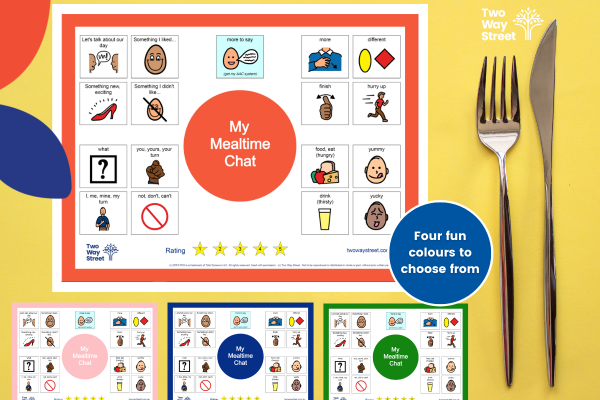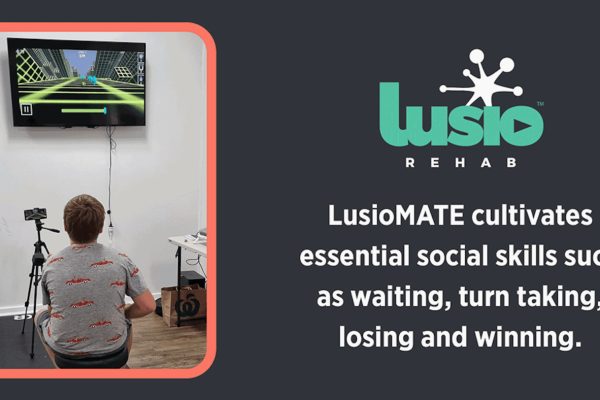
Supporting an autistic person to get their first job
A first job is a huge milestone and an enormous learning curve. As well as being a big step forward in achieving independence, a supportive and engaging job allows an individual to develop their resilience, social skills and overall confidence, while hopefully doing something they love!
Autistic employees bring endless benefits to a wide range of jobs and will thrive in the right role alongside the right support.
Here’s how you can empower your child or young adult to prepare for work and find a first job that is both meaningful and enjoyable.
STRENGTHS AND SKILLS
Everyone has strengths they can bring to a job, even their first one! This includes the skills that might not initially seem relevant to building a career – in fact, these are often the skills that help us stand out. For example, a young person who excels at video games might be an excellent problem solver, while someone who can draw for hours might have incredible focus and attention to detail.
Encouraging your child to make a list of their strengths and skills can help them identify the kinds of jobs they are capable of and interested in. This could be anything from strong computer skills to an excellent long-term memory. It’s also a great reminder of the many assets they can bring to the workplace throughout the job-hunting process.
On the flip side, it can also be helpful for your child to consider what doesn’t align with their needs and interests. For example, a job that involves lots of small talk and in-person interaction might be incredibly draining and overwhelming.
TYPES OF JOBS
There are a range of employment pathways available to people with autism, catering to a variety of interests and support needs. Many autistic people will want to transition to the workforce straight after high school or pick up a part-time job while they’re studying. Some autistic people might want to complete further education at university or TAFE before finding a job. And others might find that Supported Employment is the best fit, as they can participate in a structured employment program designed to support individuals with moderate to high support needs.
Many autistic people are able to work in mainstream settings and can benefit immensely from some simple and inexpensive adjustments to their schedule, environment and / or responsibilities. Reasonable adjustments are defined as accommodations that aren’t unreasonably difficult or incredibly expensive to implement, and employers are legally obliged to consider if reasonable adjustments would help an employee perform their job or perform it better. These accommodations will look different for every autistic individual and may only be required on some days and in some circumstances.
Here are some examples of reasonable workplace adjustments:
- Wearing sunglasses, noise-cancelling headphones or a different uniform
to prevent sensory overload or discomfort. - Having daily tasks and instructions written down or broken into smaller tasks.
- Having a designated quiet space and sensory/fidget items for emotional regulation.
- Receiving more frequent feedback or support from a buddy or manager.
- Working flexible hours.
Aside from the kind of job your child wants, there are also some logistical things that are helpful to consider. Would working early mornings or late nights be challenging? Is there a safe and reliable way for your child to travel to and from work, perhaps with a support worker? Would they be better in a full-time, part- time or casual role? Asking these questions early will help narrow down their search.
EXTERNAL SUPPORT OPTIONS
There are a range of organisations and funding schemes designed to support people with disability to look for and maintain work. If your child is a NDIS participant, they may be eligible for the School Leavers Employment Scheme (SLES), which supports young people with the capacity to work in mainstream settings to find and transition to work in their final year of school. The NDIS can also support participants with accessing Supported Employment, or you can search the ‘BuyAbility’ website to find social enterprises in your area.
Engaging with a Disability Employment Service (DES) might also be beneficial. These services are designed for people with disabilities who are not currently employed to find and keep work, whether that’s a part-time job while they’re at school or a permanent role. These services are also available both inside and outside of the NDIS.
A DES provider will support people with disability as they look for work and should continue to liaise between an individual and their employer in the weeks and months after they find a job to ensure it is the right fit. Examples of assistance a DES provider will offer during this process include resume writing, job interview practice, securing work experience and helping individuals communicate with prospective employers.
RIGHTS AND PROTECTIONS
The Disability Discrimination Act 1992 states that people with disability have the right to the same employment opportunities as non-disabled people.
If an individual can meet the ‘inherent requirements’ of a job (i.e., complete its main roles and responsibilities), then they must be given an equal opportunity to apply for or do that role. The Act also encourages employers to have their own policies and programs to address and prevent disability discrimination and harassment.
If you or your child believes they are experiencing discrimination at work or when applying for a job, the best first step is to try and raise the issue directly with those involved. This could be a manager, supervisor or someone from human resources (HR). Your child might benefit from the support of a family member, friend, disability advocate or colleague during this time. If this doesn’t resolve the situation, your child can make a complaint to the Australian Human Rights Commission, which is free and can be done by a solicitor, disability advocate or trade union on an individual’s behalf.


For further information and support for autistic people entering the workplace, visit autismawareness.com.au and autismwhatnext.com.au.







